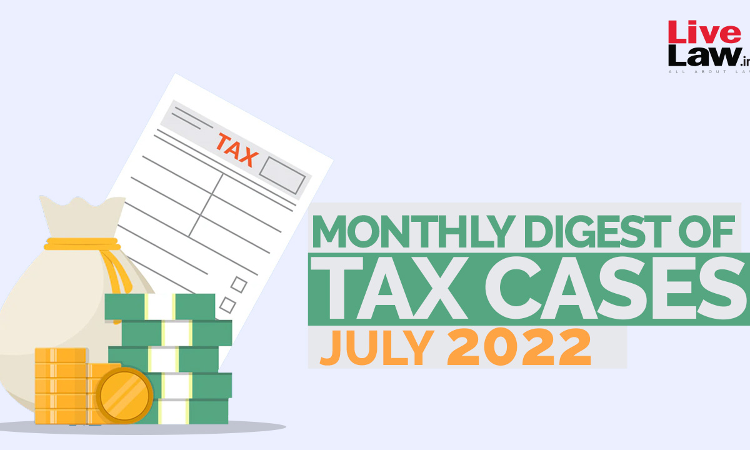- Home
- /
- News Updates
- /
- Tax Cases Monthly Round-Up: July...
Tax Cases Monthly Round-Up: July 2022
Mariya Paliwala
1 Aug 2022 7:00 PM IST
Indirect TaxSupreme Court 'Anardana' Be Classified Under Heading 1209 Of Tariff Entries Under Customs Tariff Act, 1975 & Attract 5% Custom Duty Till Revenue Takes Policy Decision Regarding The Same: Supreme Court Case Title: Commissioner of Customs And Central Excise, Amritsar (Punjab) v. M/s. D.L. Steels Etc. Civil Appeal Nos. 2360-2376 of 2009 The Supreme Court...
Next Story



